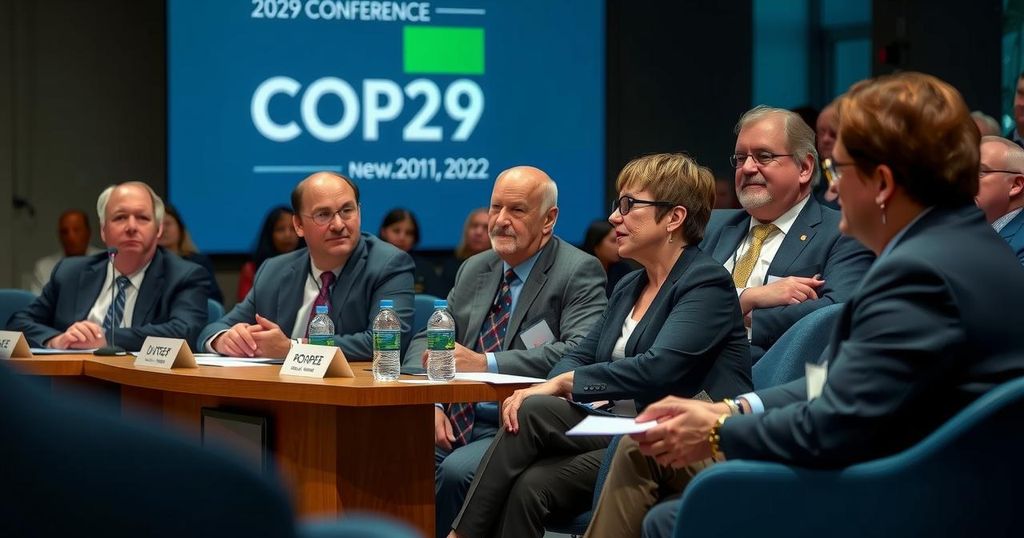At COP29 in Baku, leaders expressed divergent views on climate change strategies as new reports call for achieving carbon neutrality by the late 2030s. Emissions have reached record highs, prompting urgent action, particularly for developing nations seeking financial commitments from wealthier countries. As talks progress, the focus remains on balancing fossil fuel reliance with sustainable practices amidst deep-rooted discrepancies among nations.
During the UN climate talks at COP29 in Baku, world leaders presented conflicting strategies to combat climate change, as a new report indicated an urgent need for accelerated action to achieve carbon neutrality. Current carbon emissions have reached unprecedented levels, necessitating net-zero emissions by the late 2030s to adhere to the Paris Agreement’s goal of limiting global warming to 1.5ºC. Amidst this backdrop, Azerbaijani negotiator Yalchin Rafiyev emphasized the shrinking time frame for effective action, while others, like Albanian Prime Minister Edi Rama, criticized the inaction of many leaders who were absent from the conference. Contrastingly, leaders from various countries expressed the necessity for a pragmatic approach regarding fossil fuels while developing nations underscored the urgency of financial commitments to support climate adaptation. The discussions culminated in ongoing negotiations around a proposed financing deal, with developing nations pressing for substantial financial aid rather than loans, citing disproportionate climate-related costs. As the talks progress, the disparity between developed and developing nations’ perspectives on climate finance and action remains a critical tension point.
The COP29 climate talks serve as a platform for global leaders to negotiate and strategize on approaches to address climate change amid increasing carbon emissions. The urgency to limit global warming to 1.5ºC has intensified, with scientific reports warning that current emission levels necessitate achieving net-zero by the late 2030s. The conference takes place against a backdrop of financial negotiations, particularly focusing on aiding poorer nations in transitioning to sustainable energy sources and adapting to climate impacts. However, divisions remain on how to balance economic interests with environmental imperatives, showcasing differing perspectives primarily between developed and developing nations.
In conclusion, COP29 highlighted the critical junction at which global climate action currently stands, with significant disagreements on financial commitments and fossil fuel reliance. The precarious increase in emissions has underscored the need for immediate and substantial action to avert the worst impacts of climate change. As negotiations continue, the emphasis will be on reconciling these divisions and establishing a concrete framework for climate finance that addresses the needs of the most vulnerable nations.
Original Source: jordantimes.com






